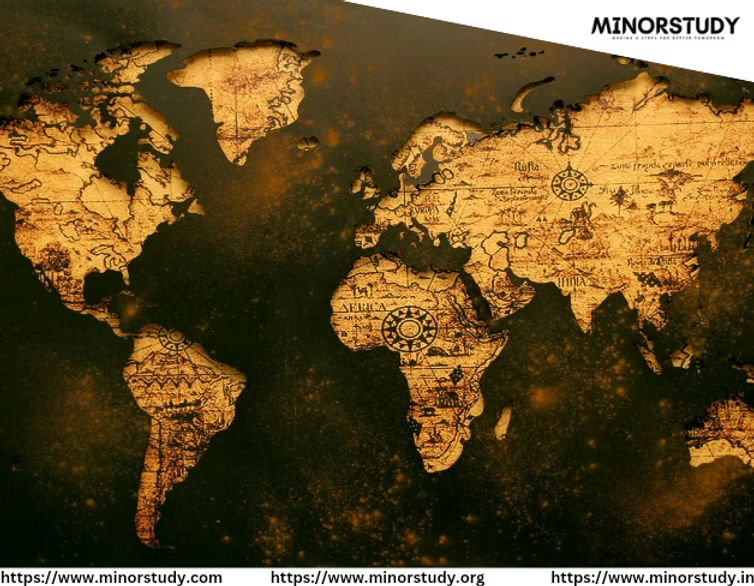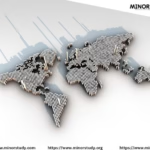Top 10 Most In-Demand Degrees in the World with Powerful Career Potential
Most In-Demand Degrees: In a fast-evolving world driven by innovation, sustainability, healthcare, and digital transformation, the choice of a degree plays a pivotal role in defining the direction of one’s life. Some academic degrees not only open doors to high-paying jobs but also provide the knowledge to solve real-world problems. Across continents, millions of students aim for fields that offer both career security and societal impact.
- 🌍 1. Computer Science and Information Technology
- 🧬 2. Medicine and Healthcare Sciences
- 📈 3. Business Administration and Management
- 🧠 4. Psychology
- ⚖️ 5. Law
- 💡 6. Engineering (Various Fields)
- 📊 7. Economics
- 🌱 8. Environmental Science
- 🧮 9. Mathematics and Statistics
- 🎨 10. Design and Creative Arts
- 🧾 Important Timeline for Degree Evolution
- 💬 Frequently Asked Questions (FAQs)
- 🎓 Significance in Daily Life and Society
- 🙏 Wishing All Students and Learners
- 🧠 Conclusion: Why These Degrees Matter
This article will explore the history, facts, FAQs, timeline, significance, wishes for students, and the life and societal impact of the most popular degrees worldwide—helping you understand what makes these qualifications so influential and meaningful.
🌍 1. Computer Science and Information Technology
History:
Computer Science emerged as a discipline in the 1950s with the rise of early computing machines. By the 1980s and 1990s, universities began offering full-fledged degree programs as software and hardware boomed.
Why It’s Popular:
High salaries
Job stability
Remote work opportunities
Demand in every sector (healthcare, finance, education, gaming)
Timeline Highlights:
1940s–50s: ENIAC and early computers
1970s: Programming languages like C and Pascal
2000s: Rise of cloud computing
2020s: AI, cybersecurity, and data science boom
Impact on Society:
Almost everything runs on code—from smartphones to hospitals. CS professionals are today’s digital architects.
🧬 2. Medicine and Healthcare Sciences
History:
Medicine has existed for thousands of years—from Ayurveda and Greek medicine to modern surgery and pharmacology.
Facts:
Medicine degrees take 5–7 years
Global shortage of 10 million healthcare workers by 2030 (WHO)
Why It’s Important:
Medical professionals save lives, combat pandemics, and improve longevity.
Career Opportunities:
Doctors, surgeons, dentists, pharmacists, nurses, physiotherapists, and researchers.
Human Impact:
Doctors are life-changers. Every village, city, and nation depends on their skills.
📈 3. Business Administration and Management
History:
The first business school, ESCP Europe, was founded in 1819. The Harvard Business School set the MBA standard in 1908.
Facts:
Over 1 million MBA students enroll globally every year
70% of CEOs have business backgrounds
Popular Specializations:
Marketing, Finance, HR, Strategy, Entrepreneurship
Timeline:
1900s: Emergence of corporate management studies
1980s: Globalization boosts MBAs
2000s: Rise of tech startups and innovation-based leadership
Life Impact:
A business degree often leads to leadership, innovation, and high earning potential.
🧠 4. Psychology
History:
Psychology emerged as a scientific field in the late 19th century. Sigmund Freud and Carl Jung revolutionized the understanding of the human mind.
Facts:
One of the fastest-growing degrees in the 21st century
High relevance in schools, offices, hospitals, and legal systems
Why It Matters:
Mental health is now a global priority. Psychologists help individuals and organizations thrive.
Jobs:
Counselors, therapists, HR consultants, forensic psychologists, researchers
⚖️ 5. Law
History:
Law degrees trace back to Ancient Rome. Modern law evolved through English common law, Napoleonic codes, and constitutional democracies.
Timeline Highlights:
600 BCE: Code of Hammurabi
12th century: Universities in Europe begin formal legal education
20th century: Rise of international law and human rights law
Facts:
Over 80% of political leaders have legal backgrounds
Growing demand in tech law, cyber law, and environmental law
Societal Impact:
Lawyers protect justice, uphold human rights, and shape policy.
💡 6. Engineering (Various Fields)
History:
Engineering has ancient roots—evident in the pyramids of Egypt, Roman aqueducts, and Indian stepwells.
Fields in Demand:
Software Engineering
Civil Engineering
Electrical & Electronics
Mechanical
Environmental
Global Facts:
Engineering degrees are among the highest paid
Engineering graduates fuel infrastructure, defense, and innovation
Significance in Life:
From bridges to microchips, engineers build the backbone of civilization.
📊 7. Economics
History:
Adam Smith’s The Wealth of Nations (1776) marked the birth of modern economics.
Why It’s Popular:
It explains markets, financial systems, poverty, and global trade.
Career Roles:
Policy analysts, economists, actuaries, financial advisors, development experts
Timeline:
1930s: Keynesian revolution
1980s–2000s: Globalization and neoliberal policies
2020s: Rise of behavioral and environmental economics
Societal Role:
Economists shape budgets, inflation policies, and welfare systems.
🌱 8. Environmental Science
History:
Grew rapidly post-1970s environmental movements (e.g., Earth Day).
Why It’s Needed:
Climate change, resource scarcity, and sustainability are global challenges.
Careers:
Environmental consultants, conservationists, policy advisors, ESG analysts
In Daily Life:
Their work ensures clean air, safe water, and sustainable living for all.
🧮 9. Mathematics and Statistics
History:
From Babylonian algebra to Indian zero and modern AI math models, math has long been essential.
Demand Areas:
Data science, insurance, AI, economics, academia
Facts:
Core skill in most modern careers
Backbone of tech, economics, and forecasting
Impact:
Mathematicians make sense of big data and complex systems in medicine, finance, and even space travel.
🎨 10. Design and Creative Arts
History:
Art and design education goes back to the Renaissance, but formalized degrees emerged in the 20th century.
Fields in Demand:
UX/UI Design, Product Design, Fashion, Animation, Game Design
Timeline Highlights:
1920s: Bauhaus revolution
2000s: Rise of digital and 3D design
2020s: Metaverse and immersive tech design
Societal Role:
Designers influence branding, storytelling, and user experience. Creativity is the new currency in the digital age.
🧾 Important Timeline for Degree Evolution
| Year | Degree Evolution |
|---|---|
| 1096 | First university degrees at Oxford |
| 1800s | Birth of business and economics programs |
| 1940s | Rise of computer science |
| 1960s | Expansion of liberal arts and psychology |
| 2000s | Tech, environmental, and interdisciplinary degrees boom |
💬 Frequently Asked Questions (FAQs)
Q1: Which degree has the highest demand in 2025?
A: Computer science, data science, and healthcare degrees are topping global demand lists.
Q2: Are traditional degrees still relevant in the age of online learning?
A: Yes. While online learning is growing, accredited degrees from universities still hold significant value for employment and migration.
Q3: Can I get a good job with a psychology or arts degree?
A: Absolutely! With the right specialization and soft skills, these degrees lead to fulfilling and impactful careers.
Q4: How do I choose the right degree?
A: Align your choice with your interest, aptitude, values, and job market trends.
🎓 Significance in Daily Life and Society
These degrees go far beyond paychecks. They influence:
Health and well-being
Economic growth
Innovation and sustainability
Justice and ethics
Mental peace and social resilience
Each degree shapes a part of society. Whether it’s an engineer building a bridge, or a psychologist saving a teenager from depression, the daily impacts are immense.
🙏 Wishing All Students and Learners
To all aspiring learners across the globe—may you choose a path that inspires your soul, challenges your intellect, and serves humanity. No matter the degree you pursue, remember:
“Success isn’t in the degree you earn, but the difference you make with what you learn.”
🧠 Conclusion: Why These Degrees Matter
The most popular degrees globally are more than academic milestones—they are vehicles of change. They fuel nations, elevate families, innovate systems, and nurture values. In a world that’s rapidly evolving, choosing the right degree isn’t just about prestige—it’s about purpose.
These degrees continue to remain prestigious, powerful, and practical. As societies adapt to AI, pandemics, and climate challenges, the demand for educated, ethical, and empathetic graduates is more critical than ever.








